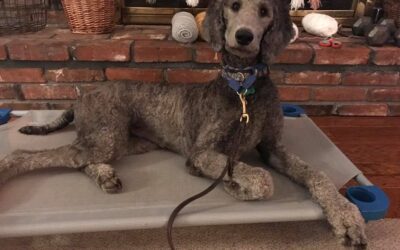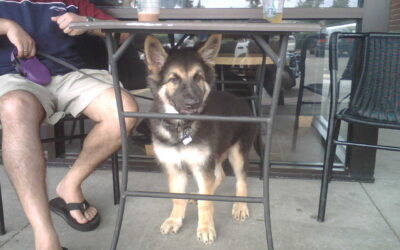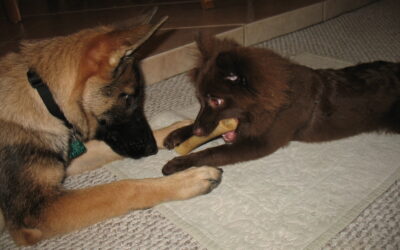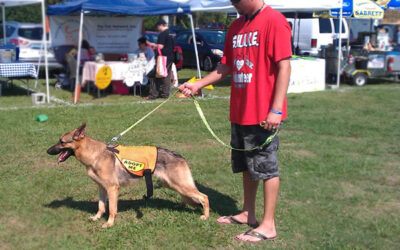 We dog trainers are in a unique position here in Dallas/Fort Worth and throughout Texas and the United States. We are basically an unregulated industry, anyone can buy business cards and advertise they are a Dog Behaviorist, or a Dog Trainer, or a Dog Whisperer, or a Dog Whatever. 🙂 Personally I don’t support any sort of regulation (who watches the watchers?) but it is important to understand how to separate the wheat from the chaff and find an effective dog professional that can help you. One cannot just assess by years in business, the news shows us trainers that have decades of of experience but turn up as dog hoarders or abusers or some other type of issue. Sometimes those trainers are just as good at fooling other trainers as they are fooling the public but you can’t fool all of the peers all of the time and we usually find out.
We dog trainers are in a unique position here in Dallas/Fort Worth and throughout Texas and the United States. We are basically an unregulated industry, anyone can buy business cards and advertise they are a Dog Behaviorist, or a Dog Trainer, or a Dog Whisperer, or a Dog Whatever. 🙂 Personally I don’t support any sort of regulation (who watches the watchers?) but it is important to understand how to separate the wheat from the chaff and find an effective dog professional that can help you. One cannot just assess by years in business, the news shows us trainers that have decades of of experience but turn up as dog hoarders or abusers or some other type of issue. Sometimes those trainers are just as good at fooling other trainers as they are fooling the public but you can’t fool all of the peers all of the time and we usually find out.
So, what is one to do? Most dog trainers I know that are worth their salt do NOT refer to themselves as behaviorists. I do have one very good friend who is excellent with dogs that refers to himself as a behaviorist, but personally I think of him as a trainer. 🙂 Often the behaviorists indicate they are working to change the dogs attitude and behavior but do not teach specific obedience tasks like heeling. These might include things like aggression, fear, phobias, and anxiety. They aren’t interested in teaching a dog specific behaviors other than things like coping skills (move away from a stressor) or counter conditioning a dog to like something they previously disliked. Often behaviorist are coming to the task from a more academic standpoint, and may be working with a vet to prescribe behavior altering medication. I have gotten quite a few clients who have seen a behaviorist then sought me out.
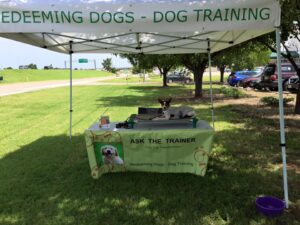 A good dog trainer can address all of those behavioral issues, but do it through the medium of teaching skills and behaviors. In my experience a good trainer has the tools to address those things, and is adept at things like desensitization, counter conditioning, confidence building, and overall coping skills. A good trainer, if they can’t address your problem, will have a network of other trainers they work with and will send you to someone better suited for your issues. A good trainer is transparent about what they can and can’t do, and what to expect. A good dog professional will have lots of video out to see how they work with dogs, and it won’t be all edited down to snippets. Whole training sessions or blocks of them will be put up for viewing. The dogs they work with won’t be looking frightened, or frantic, they should look calm and attentive. Dogs in training should respect and like their trainers, and the trainer should look like they respect and like the dog! A good trainer spends a lot of time each year learning from other trainers, and taking classes, and seeks opinions from other trainers on tough dogs. Don’t be fooled by a lot of letters and behind a trainer’s name, a lot of those certifications are written tests that have nothing to do with hands on work with dogs. I’m proud of my professional association because the accreditation in the IACP are based on demonstrating good dog training with an actual dog.
A good dog trainer can address all of those behavioral issues, but do it through the medium of teaching skills and behaviors. In my experience a good trainer has the tools to address those things, and is adept at things like desensitization, counter conditioning, confidence building, and overall coping skills. A good trainer, if they can’t address your problem, will have a network of other trainers they work with and will send you to someone better suited for your issues. A good trainer is transparent about what they can and can’t do, and what to expect. A good dog professional will have lots of video out to see how they work with dogs, and it won’t be all edited down to snippets. Whole training sessions or blocks of them will be put up for viewing. The dogs they work with won’t be looking frightened, or frantic, they should look calm and attentive. Dogs in training should respect and like their trainers, and the trainer should look like they respect and like the dog! A good trainer spends a lot of time each year learning from other trainers, and taking classes, and seeks opinions from other trainers on tough dogs. Don’t be fooled by a lot of letters and behind a trainer’s name, a lot of those certifications are written tests that have nothing to do with hands on work with dogs. I’m proud of my professional association because the accreditation in the IACP are based on demonstrating good dog training with an actual dog.
A good trainer does not belittle clients, or brow beat them, but finds the good and motivates the owners, helps them understand how a dog works and what a dog needs from them. A good dog trainer is a lot more interested in working with clients than agonizing over other dog professionals that don’t work the same way that they do. Often ineffective trainers that aren’t making a living (i.e. aren’t effectively changing dog behavior in a timely fashion so the public doesn’t seek them out) are busy trashing other trainers, and you want to stay far away from trainers like this.
A good dog trainer is going to have a back log. They probably won’t be able to get with you right away. The better they are, the longer the wait. They might interview you to see if you are a good fit as much as you are interviewing them. I know I only want clients that will do the work and realize they are the front line of changing the dog, with my guidance and teaching. If I don’t think you care about the results as much as I do I won’t take you on as a client. A good dog trainer has personal dogs that are well adjusted and can go anywhere in public and be welcome. Personally I don’t care if they can do fancy tricks, most clients don’t want that they just want a civilized critter they can include fully in their lives.
A good dog trainer is NOT going to listen to your issue and then tell you to put your dog down. If they’ve met with you and worked with you and then make that recommendation you should always talk to another trainer and get their perspective. If I think that it the best course I will tell you other trainers you can check with to see if they feel the dog can be reached. It should never be a flip response, but only one reached after a lot of assessment and agonizing.
To me, I think you need to focus on results the trainer produces. Look at testimonials from the trainer, ask to talk with clients who have issues similar to yours, see what they say. Be wary of someone who tells you they can fix anything, a good trainer knows some things can’t be fixed and will be honest with you about them. A good trainer (or behaviorist or whatever they call themselves) will have a long, long list of enthusiastic clients who have been helped, and they won’t mind a bit if you want to talk to a few. Don’t throw out consideration of a trainer who has a bad online reviews, often a client with unrealistic expectations or one that won’t do the work needed (think personal trainer at the gym – you have to do what the trainer says!) won’t have a stellar experience – but again they won’t have a stellar experience with anyone.
In summary, a good dog trainer is going to be super transparent, about who they are, and what they do, and how they do it. They will love people, not just love dogs. They will be as patient with people as they are with dogs. They won’t come across as the gift to the Dog Training world but will be eternal students.
I truly hopes this helps you find the dog trainer/dog behaviorist/dog whisperer/dog person that you need!


